Blossoms and Bugs: 10 Eco-Friendly Methods for a Stunning and Pest-Resistant Home Garden
Blossoms and Bugs: 10 Eco-Friendly Methods" provides quick, eco-friendly tips to keep your home garden stunning and pest-free. From companion planting to natural predators, discover ways to nurture a vibrant ecosystem.
Introduction: Welcome to our comprehensive guide on cultivating a breathtaking home garden while minimizing the use of harmful chemicals! Gardening is a rewarding hobby, but it's even more fulfilling when you can maintain a vibrant garden ecosystem using eco-friendly practices. In this blog, we'll delve into ten natural techniques to keep your garden beautiful and pest-resistant, ensuring a sustainable and thriving outdoor space for you to enjoy.
1. Companion Planting:
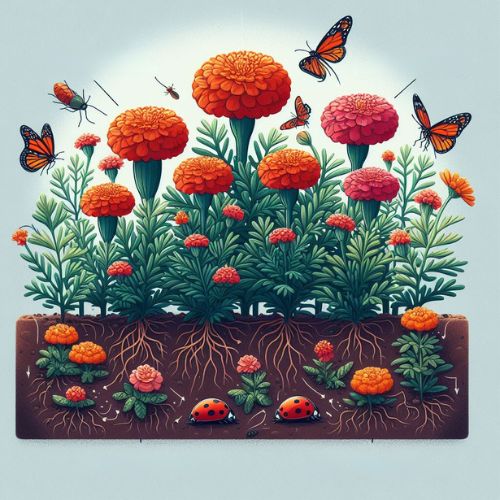
Companion planting is a time-tested method that involves pairing plants strategically to enhance growth and deter pests. By interplanting compatible species, you can create a harmonious ecosystem where plants support each other's health and resilience. For instance, marigolds emit a scent that repels nematodes, while attracting beneficial insects like ladybugs, which prey on garden pests.
2. Mulching:
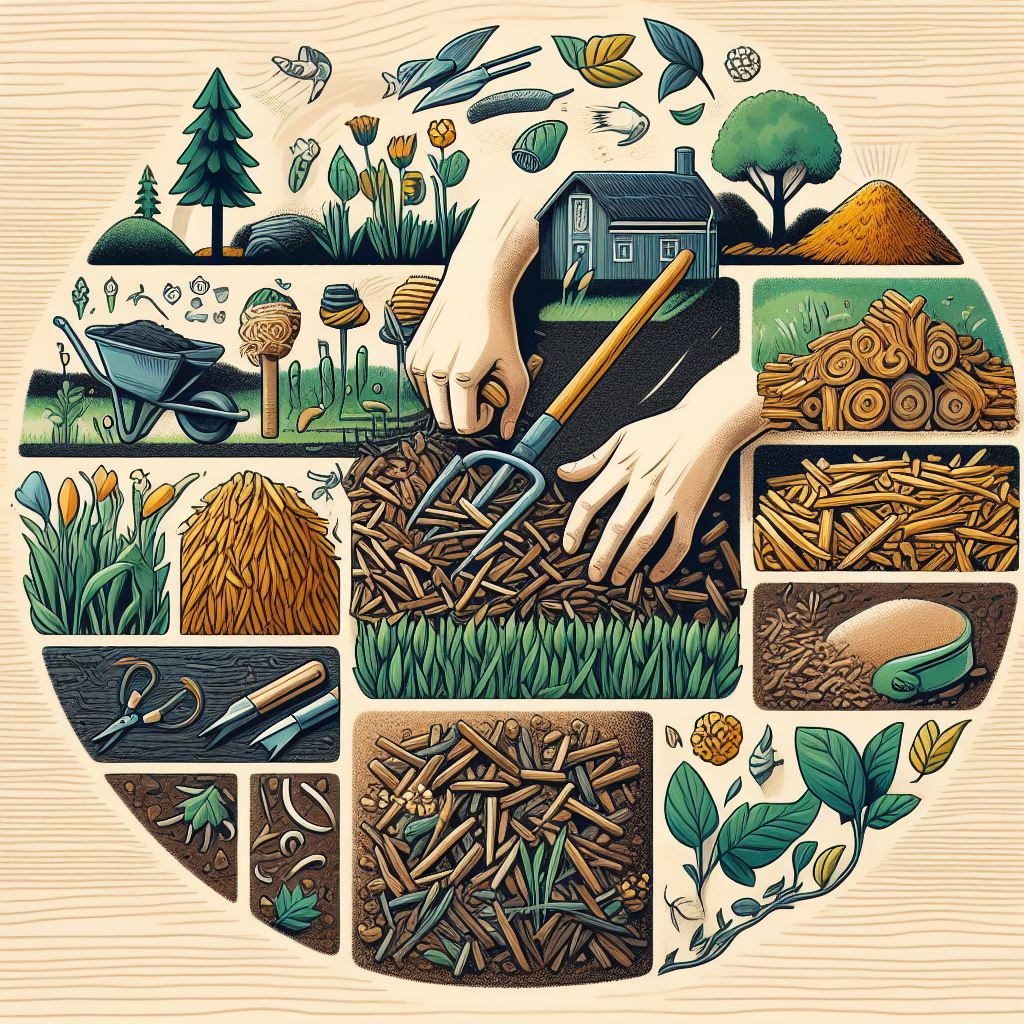 Mulching serves multiple purposes in the garden, from conserving moisture to suppressing weeds. Additionally, organic mulches like wood chips or straw create a protective barrier against pests while providing habitat for beneficial organisms. By mulching your garden beds, you can create a healthier environment for your plants while reducing the need for chemical interventions.
Mulching serves multiple purposes in the garden, from conserving moisture to suppressing weeds. Additionally, organic mulches like wood chips or straw create a protective barrier against pests while providing habitat for beneficial organisms. By mulching your garden beds, you can create a healthier environment for your plants while reducing the need for chemical interventions.
3. Natural Predators:
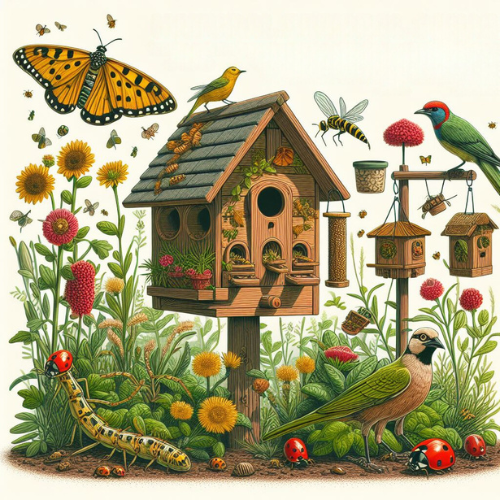
Invite nature's pest control squad into your garden by creating habitats and food sources for beneficial predators. Ladybugs, praying mantises, and birds are just a few examples of natural allies that help keep pest populations in check. By incorporating elements like bird feeders, insect hotels, and water features into your garden design, you can attract and support these invaluable helpers.
4. Neem Oil Spray:
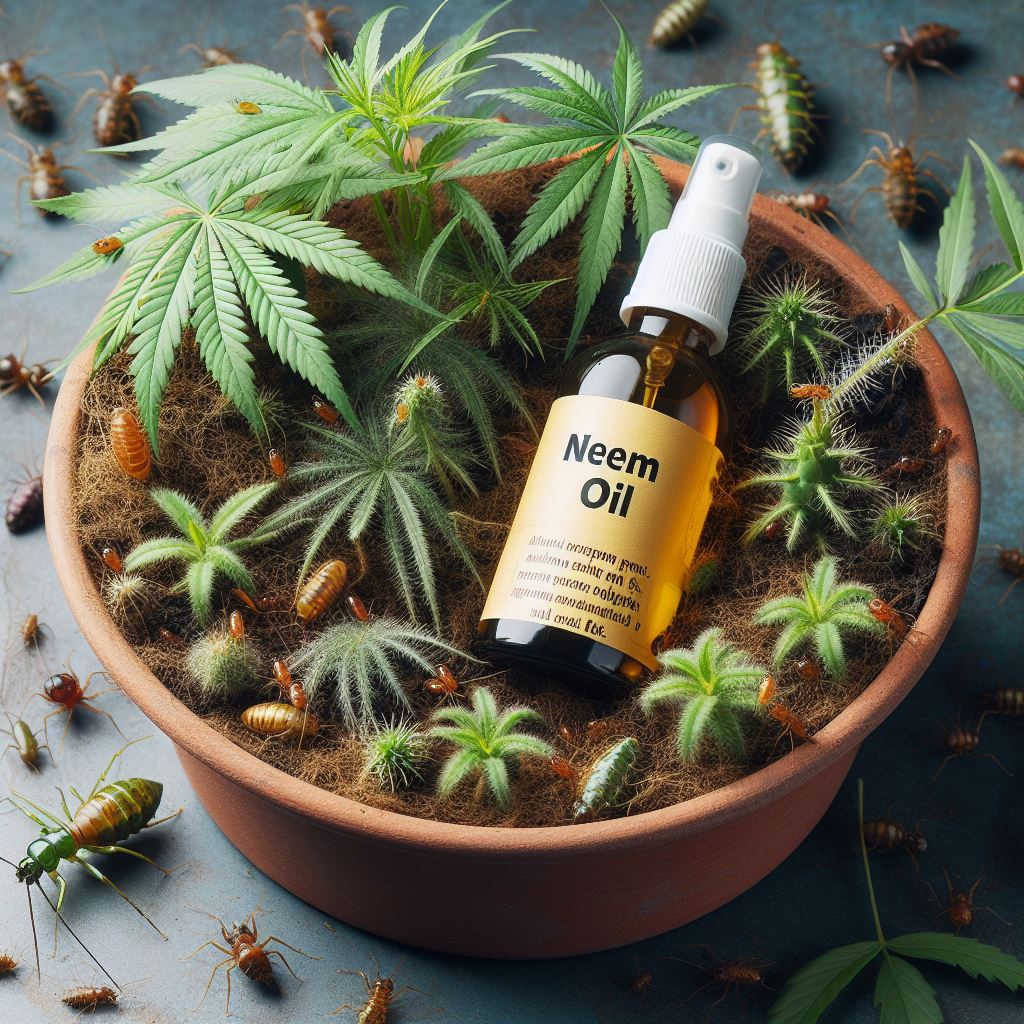 Neem oil, derived from the neem tree, is a powerful natural pesticide with a long history of use in organic gardening. It is effective against a wide range of pests, including aphids, mites, and caterpillars, while being safe for beneficial insects and non-toxic to humans and pets. Regular application of neem oil spray can help prevent pest infestations and maintain plant health in your garden.
Neem oil, derived from the neem tree, is a powerful natural pesticide with a long history of use in organic gardening. It is effective against a wide range of pests, including aphids, mites, and caterpillars, while being safe for beneficial insects and non-toxic to humans and pets. Regular application of neem oil spray can help prevent pest infestations and maintain plant health in your garden.
5. Homemade Insecticidal Soap:
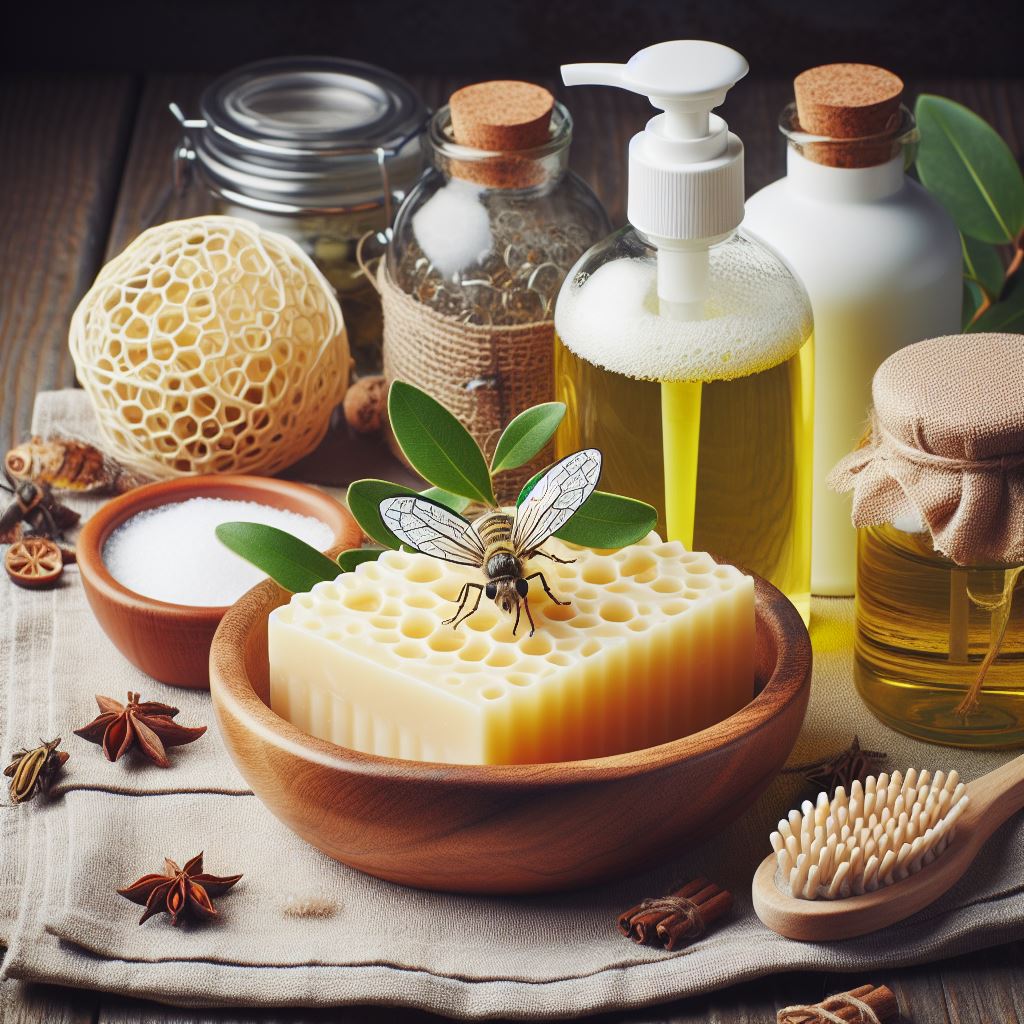 For a gentle yet effective pest control solution, consider making your own insecticidal soap using mild liquid soap and water. This homemade concoction is particularly effective against soft-bodied pests like aphids, spider mites, and whiteflies, without harming beneficial insects or causing damage to plants. Simply spray the solution onto affected plants to suffocate and deter pests.
For a gentle yet effective pest control solution, consider making your own insecticidal soap using mild liquid soap and water. This homemade concoction is particularly effective against soft-bodied pests like aphids, spider mites, and whiteflies, without harming beneficial insects or causing damage to plants. Simply spray the solution onto affected plants to suffocate and deter pests.
6. Garlic and Chili Pepper Spray:
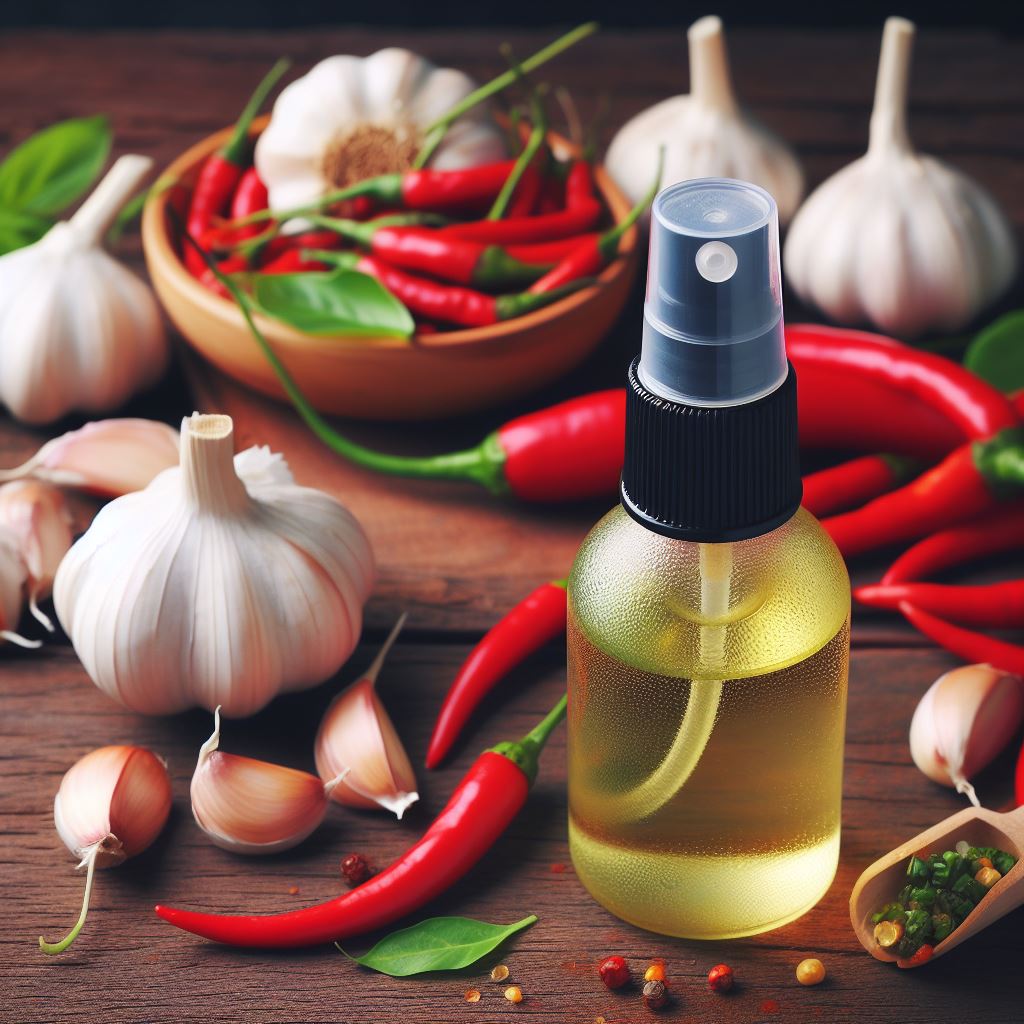 Harness the natural repellent properties of garlic and chili peppers to create a homemade pest deterrent spray. Simply blend garlic cloves and chili peppers with water to create a potent concoction that wards off pests like caterpillars, aphids, and beetles. This eco-friendly solution is safe for plants, pets, and beneficial insects, making it an ideal choice for pest control in the garden.
Harness the natural repellent properties of garlic and chili peppers to create a homemade pest deterrent spray. Simply blend garlic cloves and chili peppers with water to create a potent concoction that wards off pests like caterpillars, aphids, and beetles. This eco-friendly solution is safe for plants, pets, and beneficial insects, making it an ideal choice for pest control in the garden.
7. Handpicking:
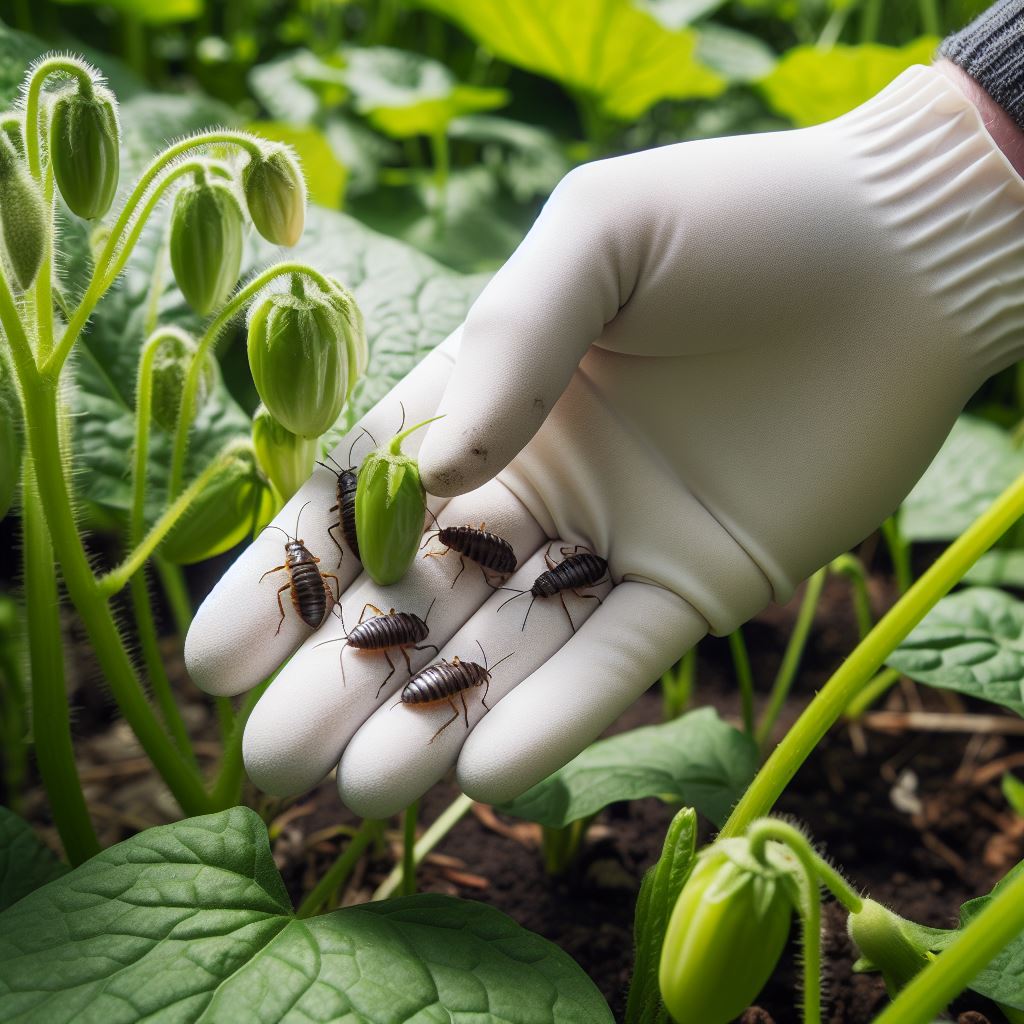 While it may be time-consuming, handpicking pests is an effective method for controlling infestations in the garden, especially for small-scale outbreaks. Regularly inspect your plants for signs of pest damage and manually remove any insects or larvae you find. This hands-on approach allows you to target specific pests without the need for chemical pesticides, preserving the natural balance of your garden ecosystem.
While it may be time-consuming, handpicking pests is an effective method for controlling infestations in the garden, especially for small-scale outbreaks. Regularly inspect your plants for signs of pest damage and manually remove any insects or larvae you find. This hands-on approach allows you to target specific pests without the need for chemical pesticides, preserving the natural balance of your garden ecosystem.
8. Crop Rotation:
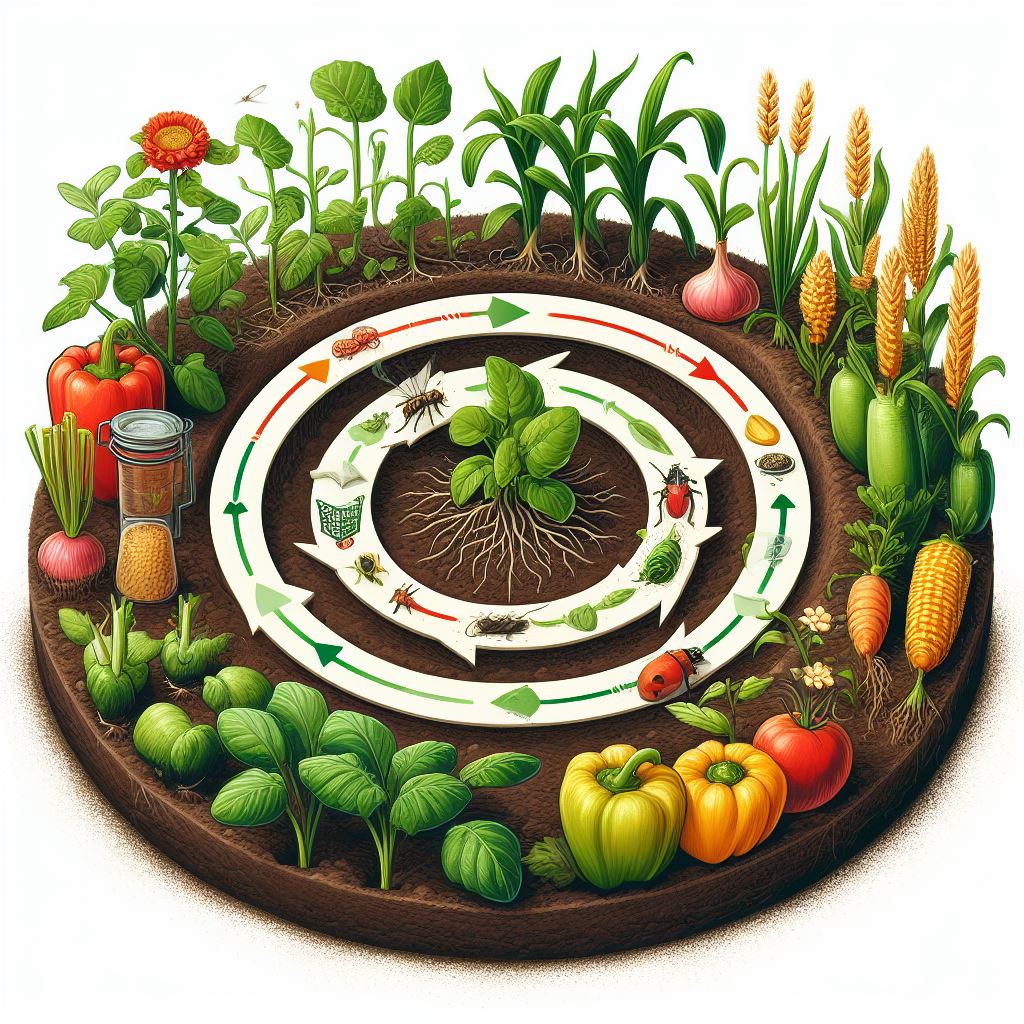 Crop rotation is a fundamental practice in organic gardening that helps prevent the buildup of pests and diseases in the soil. By rotating crops annually, you can disrupt pest cycles and reduce the risk of soil-borne pathogens affecting your plants. Additionally, crop rotation helps maintain soil fertility and structure, ensuring healthy growth and abundant harvests year after year.
Crop rotation is a fundamental practice in organic gardening that helps prevent the buildup of pests and diseases in the soil. By rotating crops annually, you can disrupt pest cycles and reduce the risk of soil-borne pathogens affecting your plants. Additionally, crop rotation helps maintain soil fertility and structure, ensuring healthy growth and abundant harvests year after year.
9. Organic Fertilizers:
 Feed your garden with organic fertilizers like compost, manure, or fish emulsion to promote healthy plant growth and increase resistance to pests and diseases. Unlike synthetic fertilizers, which can harm beneficial soil organisms and disrupt the ecosystem, organic fertilizers provide essential nutrients in a slow-release form that is readily available to plants without causing environmental damage.
Feed your garden with organic fertilizers like compost, manure, or fish emulsion to promote healthy plant growth and increase resistance to pests and diseases. Unlike synthetic fertilizers, which can harm beneficial soil organisms and disrupt the ecosystem, organic fertilizers provide essential nutrients in a slow-release form that is readily available to plants without causing environmental damage.
10. Encourage Biodiversity:
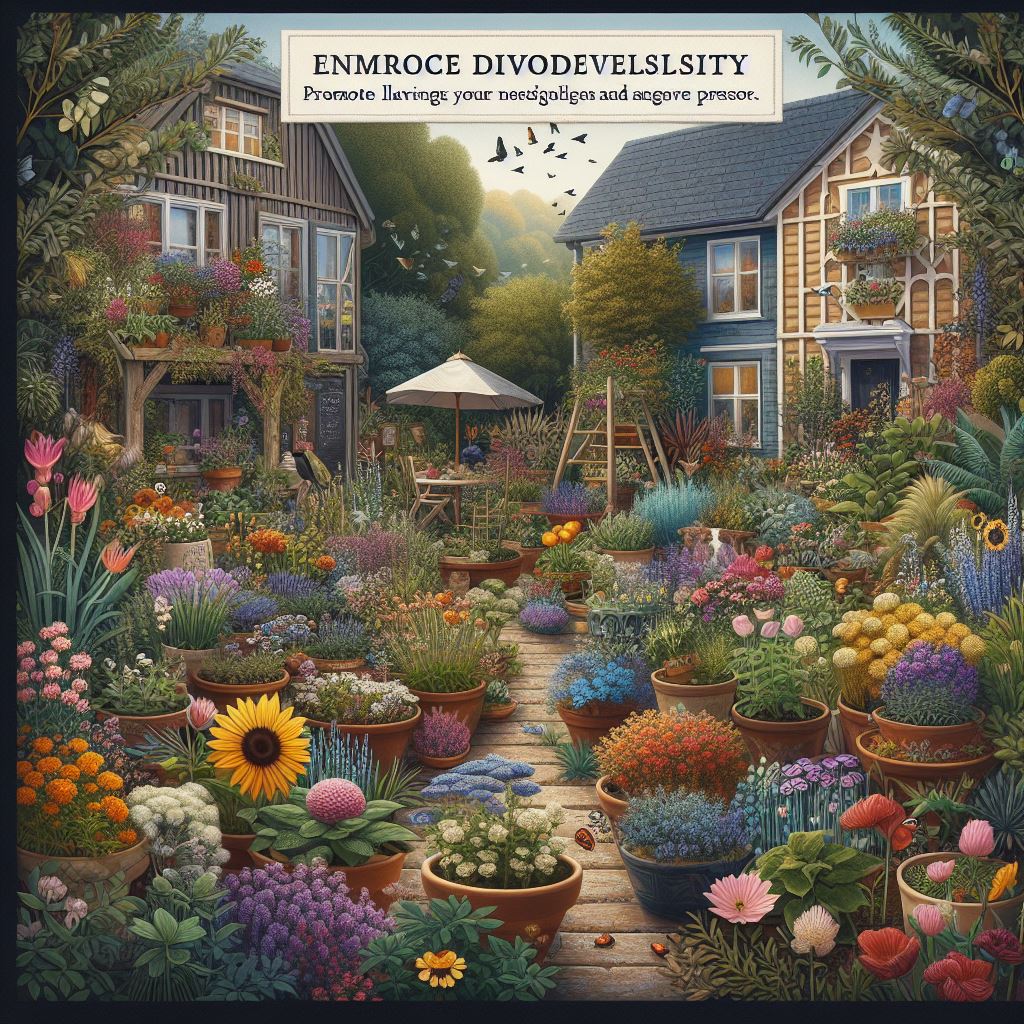 Promote biodiversity in your garden by planting a diverse range of species, including flowers, herbs, vegetables, and native plants. Biodiversity not only enhances the beauty of your garden but also helps regulate pest populations by attracting natural predators and creating a balanced ecosystem. By embracing diversity in your garden design, you can create a resilient and sustainable outdoor space that thrives with minimal intervention.
Promote biodiversity in your garden by planting a diverse range of species, including flowers, herbs, vegetables, and native plants. Biodiversity not only enhances the beauty of your garden but also helps regulate pest populations by attracting natural predators and creating a balanced ecosystem. By embracing diversity in your garden design, you can create a resilient and sustainable outdoor space that thrives with minimal intervention.
Conclusion: In conclusion, cultivating a stunning and pest-resistant home garden is entirely achievable with the right approach and eco-friendly techniques. By implementing methods such as companion planting, mulching, natural predators, and organic pest control remedies, you can create a flourishing garden ecosystem that is both beautiful and sustainable. Let's work together to nurture our gardens and protect the planet for future generations to enjoy. Happy gardening!
